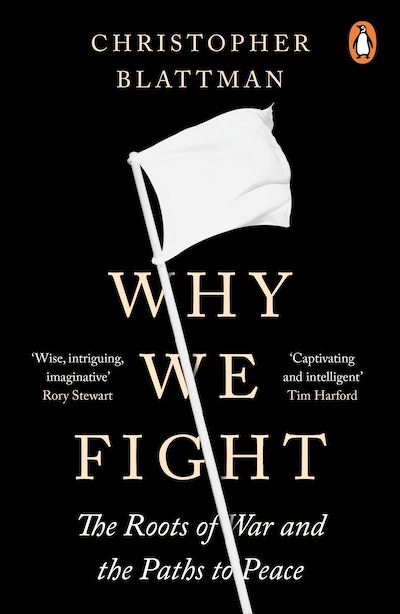- Published: 10 October 2023
- ISBN: 9780241989258
- Imprint: Penguin General UK
- Format: Paperback
- Pages: 400
- RRP: $30.00
Why We Fight
The Roots of War and the Paths to Peace
- Published: 10 October 2023
- ISBN: 9780241989258
- Imprint: Penguin General UK
- Format: Paperback
- Pages: 400
- RRP: $30.00
A great storyteller with important insights for us all
Richard Thaler, co-author of Nudge
Captivating and intelligent
Tim Harford, author of The Undercover Economist
Avoiding the useless dichotomies that either claim violence is an inseparable part of human nature or declare that humanity has all but conquered its proclivity to war, Blattman explains how human communities make use of many different strategies to resolve conflicts, and why these efforts sometimes stumble
Daron Acemoglu, co-author of Why Nations Fail
Essential for understanding the world we live in today
James A. Robinson, co-author of Why Nations Fail
Brings together the passion of the activist and the cool head of the economist to offer practical solutions to one of humanity's most intractable problems
Ian Morris, author of Why the West Rules – for Now
Timely, powerful, hopeful
Paul Collier, author of The Bottom Billion
Important, readable, radical
David Miliband, President and CEO, International Rescue Committee
Wise, intriguing, imaginative
Rory Stewart, author of The Places In Between
Blattman has produced a valuable guide, supported by engaging anecdotes, to what makes people turn to violence - and why, mercifully, they are usually too sensible to do so
Economist
Blattman deftly translates knotty ideas from game theory and social choice theory for a lay audience, weaving in colorful anecdotes from his own life and travels
Foreign Affairs
If you've been a foreign correspondent for any length of time you end up wondering what has pushed so many of the societies you cover into conflict and what can be done to prevent a repeat. Why We Fight answers many of those questions . . . Contrary to expectations, it's an optimistic book . . . outbreaks of violence are the aberration, not the norm, and small, incremental measures can have a disproportionate impact when it comes to avoiding strife. Tinkering trumps transformation
Michela Wrong, Spectator Books of the Year



